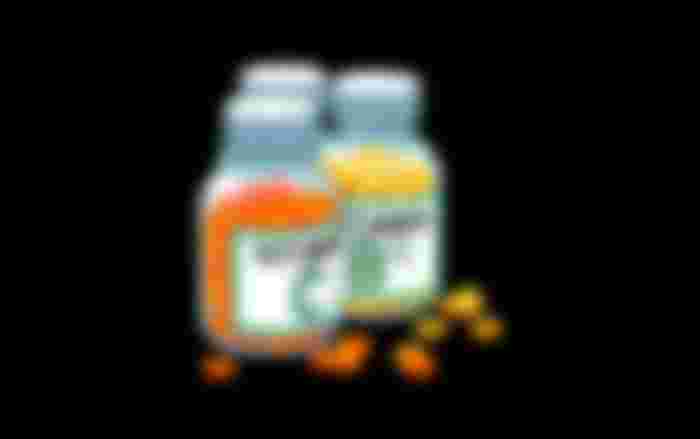Retrospection 15 – Summing up Nutrients & Dietary Supplements
In this “Retrospection” we will sum up my series on nutrients and dietary supplements, which has been published little by little over a long time. Although it is open-ended, and more related articles can turn up in due time, I don't presently plan more articles on this theme.
Before discussing supplements, one has to ask, “do we really need supplements if we eat a healthy diet”?
My answer is a clear yes. The world is so polluted and the quality of (even so-called healthy) foodstuffs is so low, so we do need supplementary nutrition in order to maintain optimal health.
Not everyone agrees to that, but before you disagree, read my article Why Dietary Supplements are Needed.
If you believe the view conveyed by mainstream media, that supplements would be worthless or even harmful, read here about the background to that disinformation.
Then if you decide to take supplements, it's not just to buy something you think you need and take that. If you do, you risk to waste your money, in some cases even harm your health - there are things to consider. I have collected some major points in Supplements, Getting Them Right: Some Points to Consider.
In addition to this, it is good to familiarize oneself with dietary solvents, since they significantly affects absorption of nutrients as vitamins and minerals. You can read about that in The Importance of Dietary Solvents.
After this introduction, you are ready for articles about single nutrients or groups of nutrients, one by one.

One of the most well-known vitamins is vitamin C. It is also a controversial vitamin, since its effects are a matter of dispute. It is an essential vitamin, nobody denies that, what's debated is the medicinal effects of very high doses. I am trying to make this clearer in Vitamin C (part 1): Can Science be Trusted? and Vitamin C (part 2): How to Use & What it Does. Part one is not only about vitamin C, it is also a general criticism of science, or how science is used for unscientific purposes.
The exact number of known B-vitamins can be disputed. If we are broad-minded about what constitutes a vitamin, about 30 substances can be counted as B-vitamins. However, by a strict definition, not all of them are genuine vitamins. More than eleven or eight are rarely discussed or included in supplementary B-complex.
Since this group is large, I discussed B-vitamins in a series of four articles:
B-Vitamins II: Thiamine, Riboflavin, Niacin, Pyridoxine, Cyanocobalamin
B-Vitamins III: Folic Acid, Biotin, Pantothenic Acid, Choline, Inositol
B-Vitamins IV: Amygdalin (B17), Pangamic Acid (B15), Orotic Acid (B13), PABA (B10), plus Guidelines
In addition to that, I wrote separately about one particularly interesting B-vitamin, Nicotinic Acid, a form of vitamin B3: Nicotinic Acid, the Real Super Vitamin! Just as for vitamin C, the medicinal effects of nicotinic acid are debated – obviously for the same reasons. It is too cheap and cannot be patented, there is no money in it, so Big Pharma tries to defame it and suppress the results of independent studies. High dose supplementation with nicotinic acid, however, comes with certain risks, so make sure that you know what you are doing before you try it – or use it only under the supervision of a medical professional. It is worth it though, and the risks can be handled. I have myself taken it regularly since 1990. The results are spectacular and I have not experienced any bad side-effects.
Traditionally, one counts 4 fat-soluble groups vitamins: A, D, E, and K.
The collective name Vitamin E stands for tocopherols and tocotrienols. Unfortunately most supplements contain only d-alfa-tocopherol, one of the four tocopherols. Studies suggest that it is not the most powerful one. Read more about vitamin E in Vitamin E - A Powerful Vitamin.
Vitamin D might very well be one of the most underrated vitamins. Optimal dosage has also been recently re-evaluated. More on vitamin D in Vitamin D – Underrated Vitamin?
Vitamin K is most known for its importance for blood coagulation, but it is also essential for how calcium is distributed in the body. Since vitamin D facilitates calcium absorption, and vitamin K controls where the calcium comes, there is an important connection between intakes of vitamins D and K. Read details on Vitamin K, read also about the relation between vitamins D and K: The Synergy of Vitamin D & Vitamin K2.
Four retinoids (retinol, retinal, retinoic acid, and retinyl esters) are collectively known as Vitamin A. You can read more about this vitamin in Vitamin A - Function & Need.
Under certain circumstances, some carotenoids, (beta-carotene is the best known) can be converged to vitamin A. But carotenes and their siblings, xanthophylls, have other independent functions as well. You can read more about them in Not Only Beta-Carotene: Carotenoids (Carotenes & Xanthophylls).
I wrote a separate article about two xanthophylls being extremely important for eye health: Lutein & Zeaxanthin: Nutrients that Protect Your Eyes from Ageing.
Under the name Bioflavonoids, one finds substances (pigments) such as Anthocyanins, Betalains, Citrus bioflavonoids, Quercetin, Catechin and Green tea polyphenols. Some of these are sometimes called Vitamin P. They have significant health benefits. Read more in Vitamin P, Bioflavonoids and Pigments – Bioflavonoids.
Vitamin U is a substance only found in cabbage. It's extremely healing, especially of ulcers and various inflammations. See Vitamin U, S-Methylmethionine.
Salicylic Acid - a plant hormone, and the active ingredient of Aspirin - is sometimes called Vitamin S. There is no real consensus about that, but there might be good reasons to consider it as something we need for optimal health. More details in Salicylic Acid: Is Aspirin a Vitamin?
Co-enzyme Q10 is sometimes called vitamin Q. It is necessary for our production of energy. In the cell, it works together with Carnitine, an amino acid. Read more about these two nutrients in Co-Enzyme Q10 & Carnitine.
Cyanide is a deadly poison, but is it also an essential nutrient? Well, I think it can be – in the right form and within limits, of course. Read more in Cyanophobia.
I have not published all that many articles here about minerals, but there are some.
In Calcium & Magnesium, I discuss these two minerals and the delicate balance between them. Further we have Selenium & Chromium: Important for Your Health and Iodine, Molybdenum, Zinc, Copper, & Manganese. Finally Iron & Cancer.
Essential Fatty Acids are sometimes called Vitamin F. On the whole, fats are a complex and difficult subject, which I have discussed in two articles: Understanding Dietary Fats Part 1 (of 2), and Understanding Dietary Fats Part 2 (of 2).
Then we have Amino Acids, which are not only the building blocks of protein, but also important biochemicals in their own right. I discussed them in Amino Acids: Nutrients & Supplements part I, and Amino Acids: Nutrients & Supplements part II.
Finally, Oxygen is an essential nutrient, although we do not take it with the food. Our relation to this element is complicated. We need it to live, it is the only thing we need all the time, with death following after just minutes of deprivation. On the other hand it is at the core of oxidation, which breaks us down and eventually kills us. Read more in Oxygen: Life & Death – A Balanced View on Antioxidants.
Oxygenation is dependent on good breathing, about which you can read in Don't Turn Your Nose Up At Your Nose – The Art of Breathing Right.
My series “Retrospection” is primarily created for new readers of mine, as a manual into my production at this platform so far - but it can be read by anyone who wants to explore my articles topic by topic, rather than doing so in chronological order. In addition to that, my retrospections contain new comments and from time to time short personal stories connected to the relevant topic or topics.
Copyright © 2022 Meleonymica/Mictorrani. All Rights Reserved.
(Image by Clker-Free-Vector-Images/Pixabay, CC0/Public Domain.)
In my INDEX, you can find all my writings on Read.Cash, sorted by topic.
Here you find my articles about vitamins, minerals & other nutrients.
My 5 most recent articles:
Audiobooks & Radio Dramas: Only Substitutes for Real Books & Theatre?
Classical British & American TV-Series
A Song of Ice and Fire - Game of Thrones: Books, TV series & Quotes

Bearing witness for Nicotinic Acid:
"The results are spectacular and I have not experienced any bad side-effects."
500mg capsule,
first thing on alternate mornings,
on an empty stomach,
with water and some token wadding to nudge it past the esophagus.
After the flush subsides
there is a distinct feeling of some kind of systemic, physiological, elation.
Perhaps just my feeling,
but....wow